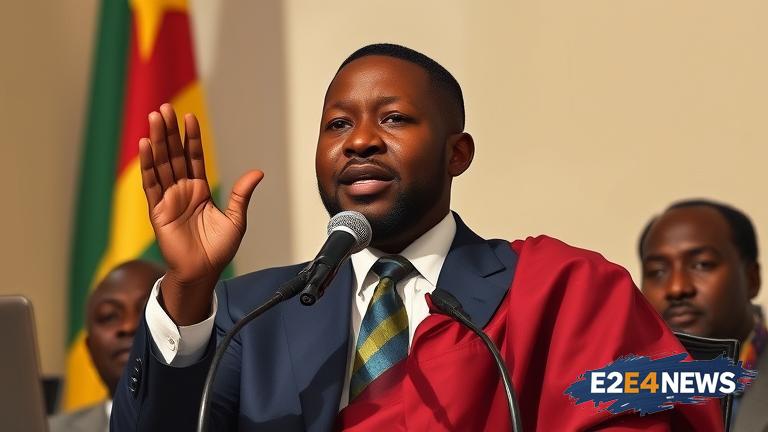A prominent Ghanaian journalist, Kwesi Pratt, has recently made a public statement urging former President John Mahama to address the ongoing agitation to make him the ‘King of Ghana’. This unusual request has sparked a heated debate among Ghanaians, with many questioning the legitimacy and feasibility of such a proposition. Pratt’s comments come at a time when the country is grappling with various socio-economic and political challenges, and the idea of a monarchic system of governance is being revisited. The journalist’s statement has been met with a mix of reactions, ranging from surprise and curiosity to outright skepticism and criticism. Some have argued that the concept of a ‘King of Ghana’ is anachronistic and incompatible with the country’s democratic values and republican system of government. Others have pointed out that the idea of a monarch is not entirely new in Ghana, as the country has a rich cultural heritage of traditional kingdoms and chieftaincies. However, the notion of a single, unified monarch for the entire nation is a complex and contentious issue that requires careful consideration and deliberation. Pratt’s call for Mahama to speak out on the matter has been seen as a way of testing the waters and gauging public opinion on the subject. The former President has not yet responded to the journalist’s request, but his silence has only added to the speculation and intrigue surrounding the issue. As the debate continues to unfold, it remains to be seen whether the idea of a ‘King of Ghana’ will gain traction or be dismissed as a mere fantasy. The Ghanaian public is eagerly awaiting Mahama’s response, and the outcome of this saga will likely have significant implications for the country’s political landscape. In recent years, Ghana has made significant strides in consolidating its democratic institutions and promoting good governance. The country has a long history of peaceful transfers of power and a strong tradition of respect for the rule of law. However, the idea of a monarchic system of governance raises important questions about the nature of power, authority, and accountability in Ghana. Some have argued that a monarch could serve as a unifying figurehead, above the fray of partisan politics and able to command respect and loyalty from all citizens. Others have countered that a monarch would be a relic of the past, incompatible with modern democratic values and prone to abuse of power. As the discussion around the ‘King of Ghana’ idea continues, it is essential to consider the potential implications for the country’s governance structure, its relationships with traditional authorities, and its overall development trajectory. The role of traditional leaders in Ghana is already a subject of much debate, with some arguing that they should play a more prominent role in national affairs and others advocating for their exclusion from formal politics. The introduction of a monarchic system would likely require significant changes to the country’s constitution, laws, and institutions, and would need to be carefully managed to avoid conflict and instability. In conclusion, the idea of a ‘King of Ghana’ is a complex and contentious issue that requires careful consideration and deliberation. While some see it as a way of promoting national unity and stability, others view it as a threat to democratic values and the rule of law. As the debate continues to unfold, it is essential to prioritize careful analysis, respectful dialogue, and a commitment to the principles of good governance and democratic accountability. The Ghanaian public is eagerly awaiting Mahama’s response, and the outcome of this saga will likely have significant implications for the country’s political landscape. The country’s media, civil society, and political leaders all have a critical role to play in shaping the discussion and ensuring that the interests of all citizens are represented. Ultimately, the decision on whether to adopt a monarchic system of governance will depend on the will of the Ghanaian people, and it is essential that their voices are heard and their concerns addressed. The international community is also watching the situation with interest, and Ghana’s development partners are likely to be keenly observing the outcome of this debate. As the country navigates this complex and challenging issue, it is essential to prioritize transparency, accountability, and the rule of law, and to ensure that the interests of all citizens are protected and promoted.
